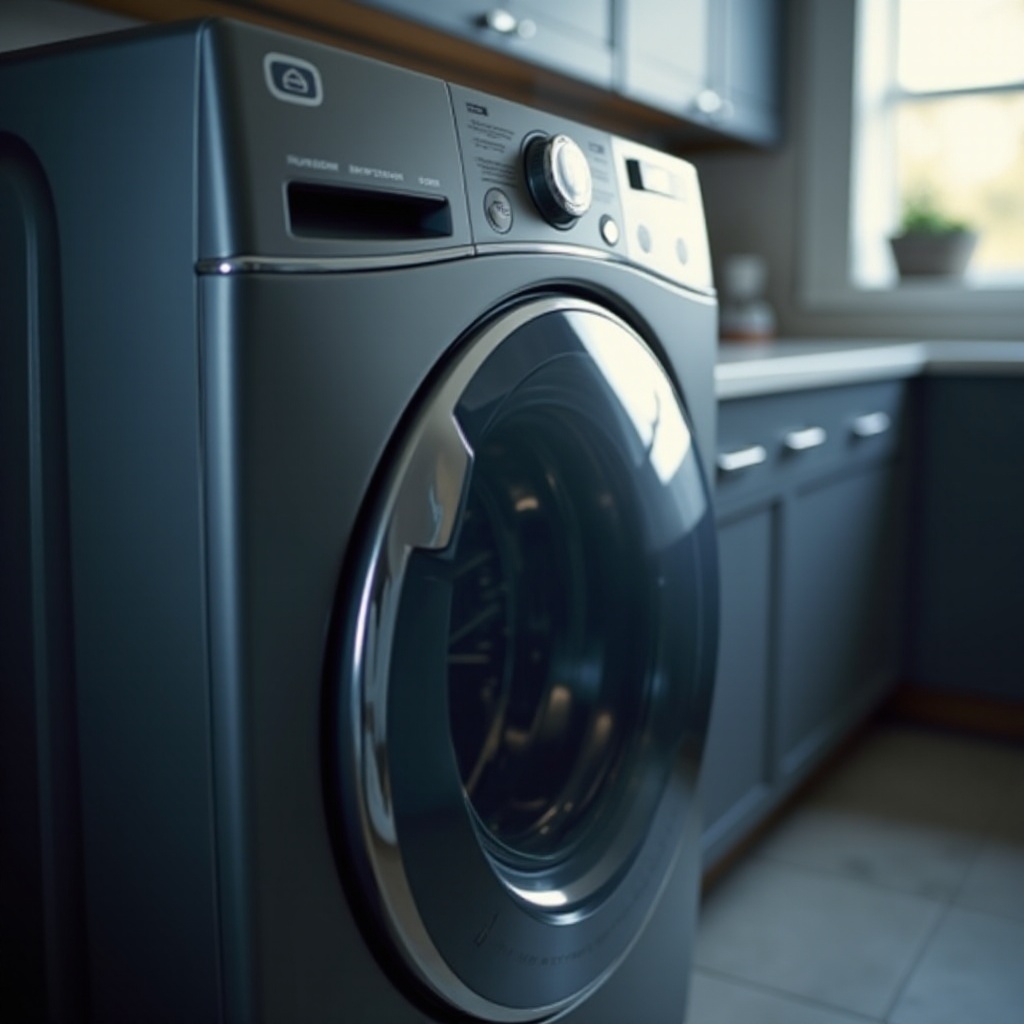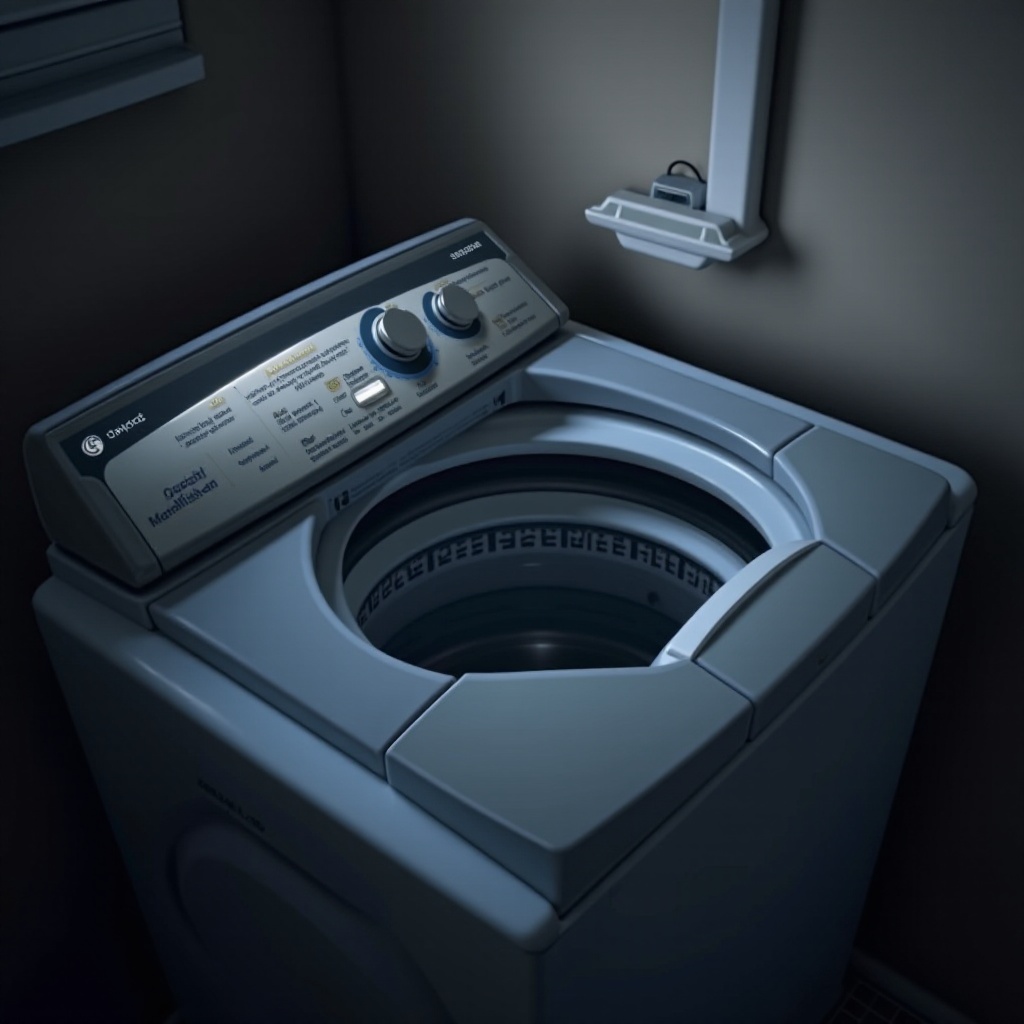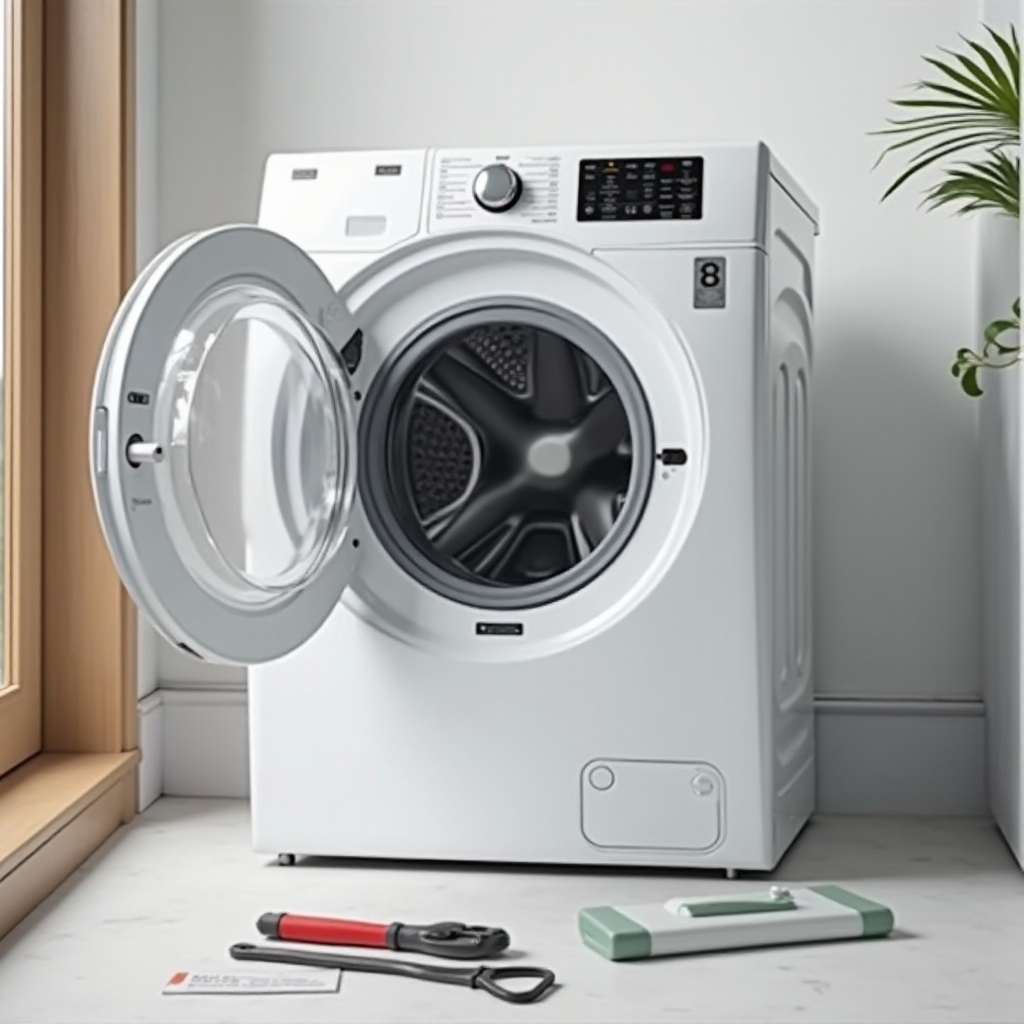Introduction
When your GE washer stops spinning or agitating, it disrupts your laundry routine. These functions are essential for cleaning and rinsing clothes effectively. Before buying a new washer or calling a technician, try some troubleshooting steps. This guide will help you diagnose the problem, offer solutions, and advise on when to seek professional help.

Common Causes of Spinning and Agitating Issues in GE Washers
Understanding the causes of your washer's issues can streamline the troubleshooting process. Commonly, these problems arise from:
- Mechanical Issues: Components like the drive belt or motor might wear out, resulting in mechanical failure.
- Electrical Malfunctions: Malfunctions in the control board or a blown fuse can interrupt the electrical flow needed for spinning and agitating.
- Load Imbalance: An uneven load can cause imbalance in the washer, preventing effective spinning or agitating.
Identifying these causes helps you narrow down the problem for a more targeted approach.

Troubleshooting Steps for a GE Washer That Won’t Spin
After identifying potential causes, start troubleshooting the spinning issues:
- Check the Load Balance: An uneven load may cause your washer to wobble and halt spinning. Redistribute clothes evenly around the drum.
- Inspect the Lid Switch: A faulty lid switch will prevent spinning for safety reasons. Listen for a click when closing the lid; replace the switch if clicking is absent.
- Examine the Drive Belt and Motor:
- Unplug the washer and remove the back panel to access the drive belt.
- Check for looseness or breakage—replace if necessary.
- Inspect the motor for damage or a burning smell.
With spinning issues addressed, let's move on to solving agitation problems.
Solutions for a GE Washer That Won't Agitate
If your GE washer won't agitate, evaluate these solutions:
- Test the Agitator Cogs: Worn or broken cogs can prevent agitation. Remove the agitator cap and inspect the cogs, replacing them if needed.
- Evaluate the Drive Block:
- Remove the agitator to check the drive block underneath.
- Replace a worn drive block that fails to engage the transmission.
- Review Timer and Control Boards:
- Use a multimeter to test for electrical continuity in the timer or control board.
- Replace any parts showing inconsistencies.
After addressing agitation issues, considering professional assistance for persistent problems is wise.

When to Call a Professional for Your GE Washer
There are times when professional intervention is necessary for washer repairs:
- Indications of Complicated Repairs: Persistent issues after troubleshooting might indicate complex internal failures or electrical problems.
- Cost-Benefit Analysis of Professional Repair Vs. DIY: Compare repair costs with new washer prices. If repairs are half or more of a new washer's cost, replacement could be more economical.
Proactive maintenance can prevent many issues from developing.
Preventive Measures and Routine Maintenance Tips
Regular maintenance can prolong your washer's efficiency and lifespan:
- Regular Maintenance Tips:
- Clean the machine regularly, including the drum, detergent dispenser, and filters.
- Inspect and clean hoses to prevent blockages or leaks.
- Keeping Your Washer Running Smoothly:
- Load the washer evenly and avoid overloading.
- Use the correct type and amount of detergent to prevent soap buildup.
These practices will help maintain your washer, minimizing the need for repairs.
Conclusion
Understanding common problems and effectively troubleshooting your GE washer saves repair costs and extends appliance life. Safety should always be the priority, and consulting a professional when in doubt is advisable.
Frequently Asked Questions
What should I do if my GE washer still won't spin after troubleshooting?
Check for new error messages, verify electrical connections, and ensure all parts are secure. If issues persist, contact a professional technician.
How often should I perform maintenance on my GE washer?
Perform regular maintenance every six months, clean the detergent dispenser and drum monthly, inspect hoses and connections quarterly.
Is it worth repairing an older GE washer that won’t agitate?
Consider the washer's age and condition. If over ten years old with significant repair needs, a new energy-efficient model may be more cost-effective.
